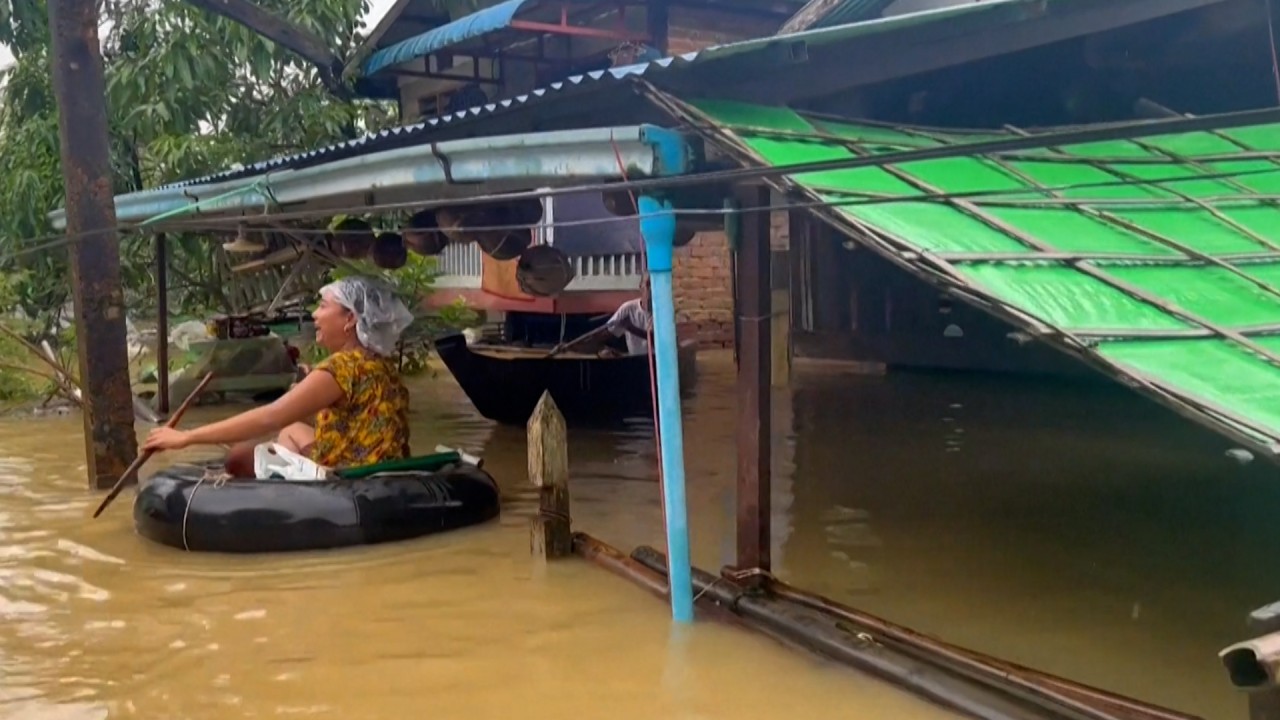Climate change: rich nations hit overdue US$100 billion climate fund goal in 2022

[ad_1]
Rich countries finally hit a long-overdue goal to provide US$100 billion of climate finance to poor countries last year, a symbolic target that could help build trust ahead of the COP28 summit in Dubai in two weeks time.
Data from the Organisation for Economic Cooperation and Development showed that developed countries had provided US$89.6 billion in 2021 and that the US$100 billion goal – originally due to have been reached by 2020 – looks likely to have been met last year.
While that figure pales in comparison to the trillions of dollars that are needed to help developing nations decarbonise their economies and adapt to a warming world, it is still a symbolic milestone that the likes of the US and the EU hope unlocks progress in other areas, such as slashing CO2 emissions.
“Demonstrating progress on past commitments, including on climate finance, is vital to set the stage for productive discussions,” Steven Guilbeault, Canada’s climate minister, and Jennifer Morgan, Germany’s special envoy for the climate, said in a joint statement.
“Our collective commitment to fully delivering on the goal no later than by the end of 2023 remains unwavering.”
The OECD’s data showed, however, that funding for adaptation decreased US$4 billion in 2021 to US$24.6 billion. At COP26 in Glasgow, the world committed to double the amount of finance going toward those goals.
Funding for measures such as sea walls and protecting infrastructure is much harder to obtain than for renewables as the returns tend to be less attractive.
Climate talks are also expected to pave the way for a deal next year that will lay out a new collective goal for providing climate finance beyond 2025.
The OECD estimates that by the middle of the decade, developing countries will need around US$1 trillion annually in climate investments, rising to US$2.4 trillion every year until the end of the decade.
That means the private sector will have to play a bigger role.
“The financing flows remain inadequate against the magnitude of the impact that developing countries are dealing with,” said Mohamed Adow, director of Power Shift Africa.
‘Wave of water bombs’: 5 dead as Storm Ciarán brings record rainfall to Italy
‘Wave of water bombs’: 5 dead as Storm Ciarán brings record rainfall to Italy
“It’s important that we don’t fall for the idea that because OECD countries will say they delivered the $100 billion that now developing countries have the resources they require to actually implement climate actions on the ground.”
Countries will also aim to start paying money into a new fund to finance the loss and damage caused by increasingly extreme weather. The EU and the US have said that they would make contributions, but it remains to be seen if more recent high emitters like China and Saudi Arabia will do the same.
The US, the country historically responsible for the largest share of greenhouse gases in the atmosphere, has consistently drawn fire for failing to deliver on its climate finance commitments.
More people are living in flood-prone areas despite the risks, study finds
More people are living in flood-prone areas despite the risks, study finds
The country has provided just US$2 billion of the US$3 billion former President Barack Obama pledged to the Green Climate Fund nearly a decade ago amid Republican opposition to the disbursements.
And though US President Joe Biden vowed to boost climate finance to US$11.4 billion annually by 2024, that effort also faces significant congressional resistance.
A US State Department spokesperson recently told Politico that in 2022 the US provided nearly US$6 billion in climate finance, with about US$2.25 billion of it coming in the form of grants.
[ad_2]
Source link






